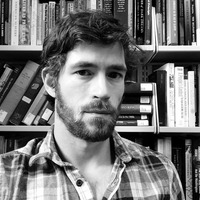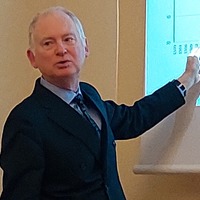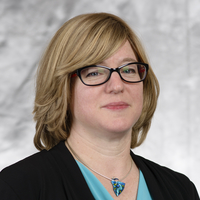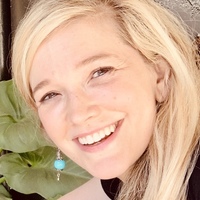Books by Shelby Balik

Northern New England, a rugged landscape dotted with transient settlements, posed challenges to t... more Northern New England, a rugged landscape dotted with transient settlements, posed challenges to the traditional town church in the wake of the American Revolution. Using the methods of spatial geography, Shelby M. Balik examines how migrants adapted their understanding of religious community and spiritual space to survive in the harsh physical surroundings of the region. The notions of boundaries, place, and identity they developed became the basis for spreading New England's deeply rooted spiritual culture, even as it opened the way to a new evangelical age.
Review: "In this beautifully written and richly researched work, Shelby Balik shows how the travels of early nineteenth century Methodists, Universalists and freewill Baptist itinerant missionaries and congregations recreated the geography of New England Protestantism, setting in motion (literally) a tension between religious rootedness and religious uprootedness, center and periphery, that endures to today. Early American religious history in Balik’s retelling of it is one of bodies in constant movement in and out and around the city on the hill. The delight Balik takes in maps and journeys is infectious. This is a wonderful addition to American religious historiography." —Robert Orsi, Northwestern University
Review: "[E]xhaustively researched ... richly textured ... In sum, this is a major work of extraordinary scholarship." —Joseph Conforti, Church History
Review: "Balik has written an engaging, ground-level religious history with larger implications ... A region typically neglected by scholars emerges in Balik's able hands as a spiritual microcosm of the sprawling, migratory early republic." —Journal of the Early Republic
Review: "[R]eading Rally the Scattered Believers helped me to consider anew the centrality of place— and the differing ways that religious organizations organize space—in understanding religious history." —Religion in American History blog
Review: "Balik’s attention to the practical effects of landscape is wonderful, opening up her analysis to insights obscured in discussions of itineracy and church-founding abstracted from actual landscapes...[She] is at her best when she's talking about the practicalities of her characters' religious lives, topographical and otherwise." —The Junto: A Group Blog on Early American History
Peer-Reviewed Articles and Book Chapters by Shelby Balik

Church History, 2022
This paper argues that childbirth served as a prism for religious experience in early America, no... more This paper argues that childbirth served as a prism for religious experience in early America, not just among the women who experienced it but also among the members of their households and communities. Examining childbirth as the source of religious experience can shed light on the social and physiological dimensions of early American spirituality by illuminating a religious culture of childbearing that shaped the piety of anyone who came into contact with it. We might expect that childbirth molded women's spirituality. But this article proposes that not just women but also others in their midst experienced religion differently because of their proximity to childbirth. Pregnancy, labor, and infant loss forced women and men to confront mortality and became means through which they carved out spiritual life, created ritual, and forged religious community. Using the body as a category of analysis, this paper reveals a space where the physical and spiritual persons intersect, and it argues that spiritual responses to childbirth as a physiological event were part of the longer arc of religious experience than we have previously appreciated. In doing so, it offers new ways to center women and gender in the narrative of early American religious history.
Religious Dissent and Disestablishment: Church-State Relations in the New American States, 1776-1833, 2019

Journal of Social History, 2017
For Americans in the early nineteenth century, friendship and faith both carried
emotional power... more For Americans in the early nineteenth century, friendship and faith both carried
emotional power. It is no surprise, then, that friendships among like-minded believers
intertwined with religious experience. This essay explores the spiritual dimensions of friendship during the early republic by considering one social network that had its hub in the household of Charity Bryant and Sylvia Drake. Bryant and Drake, who lived in Weybridge, Vermont, ran a tailor shop and were fixtures of their Congregationalist community. They formed an unconventional union; their relationship was devoted and passionate, and friends and relatives acknowledged its romantic nature. But in many ways, their household resembled others in early republican New England. Like other families, they fostered piety in their home, which became a spiritual and social gathering point for neighbors as well as far-flung friends who migrated about the region. Bryant, Drake, and their friends sustained emotional and religious connections through prayer, ritual, spiritual conversation, and correspondence and shared reading and benevolent activity. Their intimate connections suggest how friends forged spiritual communities that existed outside the bounds of formal churches and cohered in the face of dislocation. The emotional experience of friendship lent itself to the emotional experience of religion by heightening a sense of obligation and selflessness and focusing attention on matters of the soul. The intersecting experiences of friendship and religion speak to how spiritual networks helped people navigate a rapidly changing and often incomprehensible world.
Massachusetts Historical Review, 2013
The New England Quarterly, Jan 1, 2010
Op-Eds by Shelby Balik
Religion Dispatches, 2020
https://religiondispatches.org/churchgoers-stay-home-its-the-american-way/
Talks and Podcasts by Shelby Balik
Ethan Allen Homestead Museum, 2021
This talk, given for the Ethan Allen Homestead Museum in May 2021, examined a few of Vermont's mo... more This talk, given for the Ethan Allen Homestead Museum in May 2021, examined a few of Vermont's most notorious religious scandals by placing them in their social and cultural contexts.
https://www.youtube.com/watch?v=2kVE3T8gWGQ
Chasing the Mind podcast, 2017
Ben Franklin's World, 2015
In this interview with Liz Covart, I discussed my book, Rally the Scattered Believers: Northern N... more In this interview with Liz Covart, I discussed my book, Rally the Scattered Believers: Northern New England's Religious Geography
https://benfranklinsworld.com/030/
Auraria Constitution Day, 2013
Book Reviews by Shelby Balik
Journal of Southern History, 2023
H-Nationalism, H-Net Reviews, 2021
New England Quarterly, 2020
Journal of American History , 2020
Canadian Journal of History, 2019











Uploads
Books by Shelby Balik
Review: "In this beautifully written and richly researched work, Shelby Balik shows how the travels of early nineteenth century Methodists, Universalists and freewill Baptist itinerant missionaries and congregations recreated the geography of New England Protestantism, setting in motion (literally) a tension between religious rootedness and religious uprootedness, center and periphery, that endures to today. Early American religious history in Balik’s retelling of it is one of bodies in constant movement in and out and around the city on the hill. The delight Balik takes in maps and journeys is infectious. This is a wonderful addition to American religious historiography." —Robert Orsi, Northwestern University
Review: "[E]xhaustively researched ... richly textured ... In sum, this is a major work of extraordinary scholarship." —Joseph Conforti, Church History
Review: "Balik has written an engaging, ground-level religious history with larger implications ... A region typically neglected by scholars emerges in Balik's able hands as a spiritual microcosm of the sprawling, migratory early republic." —Journal of the Early Republic
Review: "[R]eading Rally the Scattered Believers helped me to consider anew the centrality of place— and the differing ways that religious organizations organize space—in understanding religious history." —Religion in American History blog
Review: "Balik’s attention to the practical effects of landscape is wonderful, opening up her analysis to insights obscured in discussions of itineracy and church-founding abstracted from actual landscapes...[She] is at her best when she's talking about the practicalities of her characters' religious lives, topographical and otherwise." —The Junto: A Group Blog on Early American History
Peer-Reviewed Articles and Book Chapters by Shelby Balik
emotional power. It is no surprise, then, that friendships among like-minded believers
intertwined with religious experience. This essay explores the spiritual dimensions of friendship during the early republic by considering one social network that had its hub in the household of Charity Bryant and Sylvia Drake. Bryant and Drake, who lived in Weybridge, Vermont, ran a tailor shop and were fixtures of their Congregationalist community. They formed an unconventional union; their relationship was devoted and passionate, and friends and relatives acknowledged its romantic nature. But in many ways, their household resembled others in early republican New England. Like other families, they fostered piety in their home, which became a spiritual and social gathering point for neighbors as well as far-flung friends who migrated about the region. Bryant, Drake, and their friends sustained emotional and religious connections through prayer, ritual, spiritual conversation, and correspondence and shared reading and benevolent activity. Their intimate connections suggest how friends forged spiritual communities that existed outside the bounds of formal churches and cohered in the face of dislocation. The emotional experience of friendship lent itself to the emotional experience of religion by heightening a sense of obligation and selflessness and focusing attention on matters of the soul. The intersecting experiences of friendship and religion speak to how spiritual networks helped people navigate a rapidly changing and often incomprehensible world.
Op-Eds by Shelby Balik
Talks and Podcasts by Shelby Balik
https://www.youtube.com/watch?v=2kVE3T8gWGQ
https://chasingthemind.libsyn.com/ep-19-history-what-the-thanksgiving-story-you-didnt-get-in-school-with-dr-shelby-balik-part-2
https://benfranklinsworld.com/030/
https://www.youtube.com/watch?v=xccFKm6ch5A
Book Reviews by Shelby Balik
Review: "In this beautifully written and richly researched work, Shelby Balik shows how the travels of early nineteenth century Methodists, Universalists and freewill Baptist itinerant missionaries and congregations recreated the geography of New England Protestantism, setting in motion (literally) a tension between religious rootedness and religious uprootedness, center and periphery, that endures to today. Early American religious history in Balik’s retelling of it is one of bodies in constant movement in and out and around the city on the hill. The delight Balik takes in maps and journeys is infectious. This is a wonderful addition to American religious historiography." —Robert Orsi, Northwestern University
Review: "[E]xhaustively researched ... richly textured ... In sum, this is a major work of extraordinary scholarship." —Joseph Conforti, Church History
Review: "Balik has written an engaging, ground-level religious history with larger implications ... A region typically neglected by scholars emerges in Balik's able hands as a spiritual microcosm of the sprawling, migratory early republic." —Journal of the Early Republic
Review: "[R]eading Rally the Scattered Believers helped me to consider anew the centrality of place— and the differing ways that religious organizations organize space—in understanding religious history." —Religion in American History blog
Review: "Balik’s attention to the practical effects of landscape is wonderful, opening up her analysis to insights obscured in discussions of itineracy and church-founding abstracted from actual landscapes...[She] is at her best when she's talking about the practicalities of her characters' religious lives, topographical and otherwise." —The Junto: A Group Blog on Early American History
emotional power. It is no surprise, then, that friendships among like-minded believers
intertwined with religious experience. This essay explores the spiritual dimensions of friendship during the early republic by considering one social network that had its hub in the household of Charity Bryant and Sylvia Drake. Bryant and Drake, who lived in Weybridge, Vermont, ran a tailor shop and were fixtures of their Congregationalist community. They formed an unconventional union; their relationship was devoted and passionate, and friends and relatives acknowledged its romantic nature. But in many ways, their household resembled others in early republican New England. Like other families, they fostered piety in their home, which became a spiritual and social gathering point for neighbors as well as far-flung friends who migrated about the region. Bryant, Drake, and their friends sustained emotional and religious connections through prayer, ritual, spiritual conversation, and correspondence and shared reading and benevolent activity. Their intimate connections suggest how friends forged spiritual communities that existed outside the bounds of formal churches and cohered in the face of dislocation. The emotional experience of friendship lent itself to the emotional experience of religion by heightening a sense of obligation and selflessness and focusing attention on matters of the soul. The intersecting experiences of friendship and religion speak to how spiritual networks helped people navigate a rapidly changing and often incomprehensible world.
https://www.youtube.com/watch?v=2kVE3T8gWGQ
https://chasingthemind.libsyn.com/ep-19-history-what-the-thanksgiving-story-you-didnt-get-in-school-with-dr-shelby-balik-part-2
https://benfranklinsworld.com/030/
https://www.youtube.com/watch?v=xccFKm6ch5A